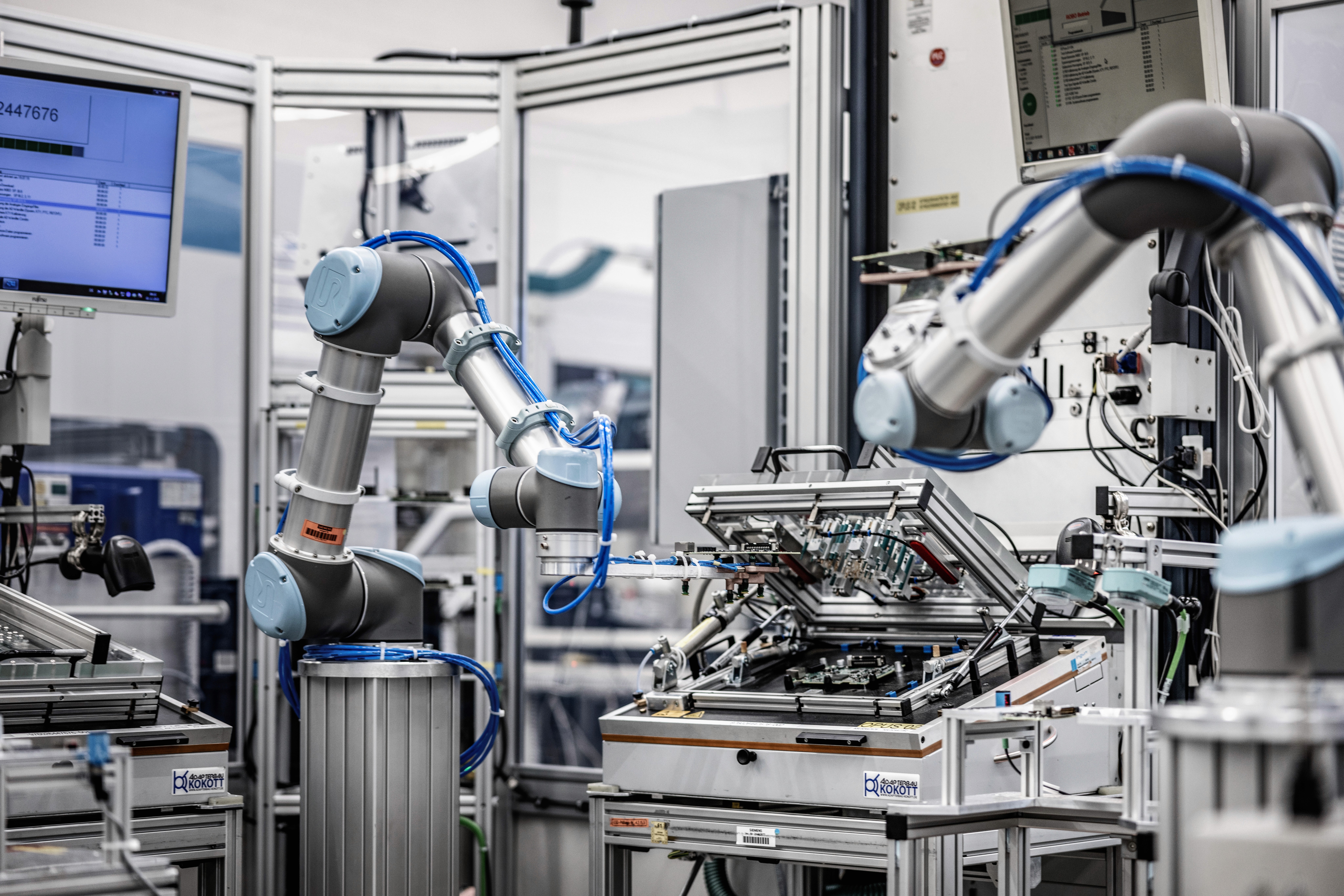How Siemens scales AI globally
Overview
Siemens and Katulu have partnered to deploy a cutting-edge Federated Learning (FL) solution across six Siemens’ factories, enhancing the quality control process for printed circuit boards (PCBs). By leveraging FL, Siemens achieved remarkable improvements in detecting anomalies, reducing manual inspections, and scaling the solution cost-efficiently across multiple sites — all while ensuring data privacy and compliance with dual-use regulations.
Understanding the PCB Production Process
Printed circuit boards (PCBs) are the foundational components in electronic devices, acting as the backbone that connects and supports electronic components. The production of PCBs involves several precise and intricate steps to ensure reliability and performance.

Solder Paste Printing: A stencil specific to the PCB design is used to apply solder paste onto designated areas of the board where components will be placed.
Solder Paste Inspection: The applied solder paste is inspected to verify the correct amount and precise positioning on each contact point.
Component Placement: Electronic components, ranging from 50 to 1,500 per board, are accurately placed onto the PCB over the solder paste spots.
Reflow Soldering: The PCB is heated in a controlled oven, melting the solder paste to permanently attach the components to the board.
Automated Optical Inspection (AOI): The assembled PCB undergoes AOI to detect any defects such as misaligned components, solder bridges (unwanted connections between solder points), or incomplete solder joints.
Ensuring the highest quality at each step is crucial, as defects can lead to malfunctioning products, increased rework costs, and customer dissatisfaction.
The Challenge
In the highly competitive electronics manufacturing sector, maintaining impeccable quality in PCB production is essential. Siemens faced several significant challenges:
Ineffectiveness of Traditional AI Models: Traditional AI models struggled to generalize across different PCB variants due to the vast diversity in designs and components. Each PCB variant might require a unique model, making it inefficient and time-consuming to maintain multiple models.
High Error Rates in AOI Systems: The AOI systems were prone to error slippage (missing actual defects) and false positives (flagging non-defective boards as defective - false call). This led to increased manual inspections, slowing down the production process and inflating operational costs.
Data Privacy and Regulatory Compliance: Sharing sensitive production data across factories was restricted due to intellectual property concerns and strict regulatory requirements, including export controls and data sovereignty laws. This made centralized AI model training impractical.
Heterogeneous Production Setups: Siemens operates multiple factories with different machines, processes, and materials. This heterogeneity made it challenging to develop a one-size-fits-all AI model that could perform accurately across all sites.
Scalability Issues: Implementing an AI solution that could scale globally while respecting local regulations and maintaining data privacy was a complex task.
Cost Efficiency: Developing, integrating and operating a solution across multiple sites that could be cost-efficiently scale at globally delivered a positive ROI.
Siemens needed a scalable, cost-efficient, and privacy-preserving solution to improve their PCB quality control without compromising on compliance or operational efficiency.
The Solution
Katulu’s Federated AI Platform provided Siemens with an innovative, scalable AI solution that addressed their quality control challenges while maintaining data privacy. This decentralized approach allowed AI models to be collaboratively trained across multiple factories without moving sensitive data.
Key Benefits
Data Privacy & Security: Sensitive production data remained within each factory, secured by differential privacy techniques. This ensured compliance with regulatory standards, including data sovereignty and export control regulations.
Seamless Integration: The platform integrated smoothly with Siemens’ existing Industrial Edge environment, reducing implementation complexity and leveraging their existing infrastructure.
Improved Efficiency: By learning from diverse factory data without centralization, the FL platform reduced errors in automated optical inspection (AOI) systems, leading to fewer false positives and a higher first-pass yield, lowering operational costs, resulting in a positive ROI within the first year.
Scalability: The solution enabled Siemens to scale across multiple factories, even in regions with strict data access laws, ensuring global consistency without compromising privacy.
In short, Siemens gained a flexible, scalable and cost-efficient AI solution that improved operational efficiency while maintaining strict data privacy standards.
Results
The implementation of Katulu’s FL platform led to a substantial improvement in PCB quality control:
First Pass Yield Increase: 1.28% in the leading plant.
Reduced Data Transfer Cost: 99.9% reduced upstream compared to centralized solutions.
Model Improvement: The F1 score improved from 84% to 99,2%, with a significant recall increase from 77% to 95%, reducing the need for manual inspections and enhancing overall model accuracy.
Streamlined MLOps: 80% reduction compared to cloud-based solutions.
Conclusion
By adopting Katulu’s Federated AI Platform, Siemens successfully overcame the challenges of enhancing PCB quality control across heterogeneous production environments while maintaining strict data privacy and regulatory compliance. The collaborative AI model not only improved defect detection and reduced manual inspections but also enabled scalable deployment across global operations.
Siemens is now rolling out the solution to additional plants worldwide, including regions with stringent data access regulations. The pre-validated model has also been deployed to production lines outside of Siemens’ own plants, ensuring data sovereignty and improved quality control for every participating factory.
Siemens and Katulu’s partnership demonstrates how innovative technologies like Federated Learning can revolutionize manufacturing processes, driving efficiency, and ensuring high-quality standards in a global, privacy-conscious landscape.
Download the Siemens White Paper
Learn more about how Siemens and Katulu overcame significant challenges in PCB production using Federated Learning. This white paper provides in-depth insights into the technical implementation, results, and how this collaboration serves as a blueprint for future industrial AI projects.
Download
Drive Innovation with Confidence: Explore how our Federated AI Platform can help you solve your most pressing enterprise AI challenges.



